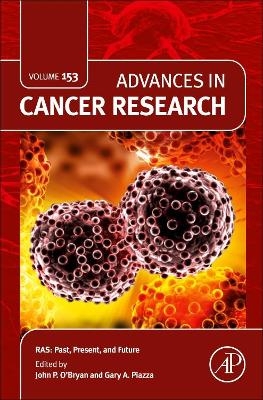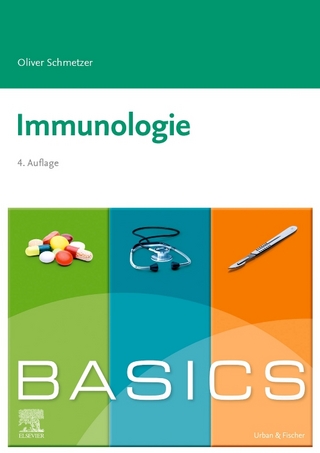
RAS: Past, Present, and Future
Academic Press Inc (Verlag)
978-0-12-824485-2 (ISBN)
Dr. O'Bryan received his Ph.D. from the University of North Carolina at Chapel Hill. He then pursued postdoctoral studies at the Samuel Lunenfeld Institute in Toronto, Canada and the University of North Carolina at Chapel Hill. Dr. O'Bryan then established his independent research program at the National Institute of Environmental Health Science, NIH in Research Triangle Park before being recruited to the University of Illinois at Chicago. In 2018, he was recruited to the NCI-Designated Hollings Cancer Center at MUSC where he is Professor in the Department of Cell and Molecular Pharmacology and Experimental Therapeutics and Director of Graduate Studies. In addition, Dr. O'Bryan has a joint appointment as a Research Health Scientist at the Ralph H. Johnson VA Medical Center. Dr. O’Bryan’s research interests have centered on understanding the regulation of cell signaling pathways involved in normal and pathophysiological conditions, particularly cancer. His current research is focused on defining vulnerabilities in RAS that can be exploited for the development of new therapeutics for the treatment of RAS mutant cancers. His research is supported by grants from the National Institutes of Health, the Veterans Administration, and various private foundations. Dr. Piazza received his Ph.D. from The University of Alabama at Birmingham in 1986 and pursued postdoctoral studies at the Fox Chase Cancer Center and later at Brown University. Dr. Piazza also gained research experience in the pharmaceutical industry with the Proctor and Gamble Company and later with Cell Pathways Inc. Dr. Piazza returned to academic research in 2001 as the Director of Pharmacology at the Institute for Drug Development in San Antonio and later as a Principal Scientist at Southern Research in Birmingham where he established an independent research program funded by the NCI. In 2011, Dr. Piazza joined the University of South Alabama Mitchell Cancer Institute to hold the appointments of Professor of Oncologic Sciences and Pharmacology; Leader, Chemoprevention and Experimental Therapeutics; and Chief of the Drug Discovery Research Center up until 2021. Currently Dr. Piazza serves as the Head of the Department of Drug Discovery and Development and as Director of the Cancer Research Center in the Harrison School of Pharmacy at Auburn University. His research interests are in the field of cancer drug discovery. His research team has discovered and developed several promising drug candidates including a novel class of pan-RAS inhibitors with high potency and selectivity for cancer cells harboring mutant RAS. Dr. Piazza has been continuously funded by the NIH since 2004 and is a co-founder of ADT Pharmaceuticals LLC in Alabama.
1. A brief history of RAS and the RAS Initiative
Frank McCormick
2. Not all RAS mutations are equal: A detailed review of the functional diversity of RAS hot spot mutations
Rachel A. Burge and G. Aaron Hobbs
3. Drug targeting opportunities en route to Ras nanoclusters
Karolina Pavic, Rohan Chippalkatti, and Daniel Abankwa
4. Targeting the ERK mitogen-activated protein kinase cascade for the treatment of KRAS-mutant pancreatic cancer
J. Nathaniel Diehl, Priya S. Hibshman, Irem Ozkan-Dagliyan, Craig M. Goodwin, Sarah V. Howard, Adrienne D. Cox, and Channing J. Der
5. Pan-RAS inhibitors: Hitting multiple RAS isozymes with one stone
Alexander B. Coley, Antonio Ward, Adam B. Keeton, Xi Chen, Yulia Maxuitenko, Aishwarya Prakash, Feng Li, Jeremy B. Foote, Donald J. Buchsbaum, and Gary A. Piazza
6. Targeting RAS oncogenesis with SOS1 inhibitors
Roman Christian Hillig and Benjamin Bader
7. Inhibition of SHP2 as an approach to block RAS-driven cancers
Yu-Ting Chou and Trever G. Bivona
8. Targeting the “undruggable RAS with biologics
Michael Whaby, Imran Khan, and John P. O'Bryan
9. Unraveling and targeting RAS-driven metabolic signaling for therapeutic gain
Jonathan M. DeLiberty, Ryan Robb, Claire E. Gates, and Kirsten L. Bryant
10. The RASopathies: Biology, genetics and therapeutic options
Jody Fromm Longo and Steven L. Carroll
| Erscheinungsdatum | 02.02.2022 |
|---|---|
| Reihe/Serie | Advances in Cancer Research |
| Verlagsort | San Diego |
| Sprache | englisch |
| Maße | 152 x 229 mm |
| Gewicht | 720 g |
| Themenwelt | Studium ► Querschnittsbereiche ► Infektiologie / Immunologie |
| Naturwissenschaften ► Biologie ► Genetik / Molekularbiologie | |
| Naturwissenschaften ► Biologie ► Zellbiologie | |
| ISBN-10 | 0-12-824485-2 / 0128244852 |
| ISBN-13 | 978-0-12-824485-2 / 9780128244852 |
| Zustand | Neuware |
| Haben Sie eine Frage zum Produkt? |
aus dem Bereich


